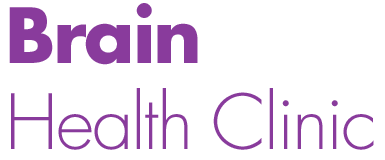
When Words are on the Tip of Your Tongue
Do you often find yourself searching for a word that you absolutely know and recognize, but that you just cannot remember, no matter how hard you try? It can be an embarrassing, humiliating, and worrisome moment. Problems with word recall can also make you wonder whether you might someday suffer from more serious disorders like dementia or Alzheimer’s disease.
Fortunately, some problems with word recall are commonplace as we age. A certain amount of decline in cognitive performance is just a part of aging and not necessarily an indication that dementia is “just around the corner.” Although it is true that troubles with word recall can be an indicator of mild cognitive impairment (MCI), an intermediate stage between normal aging and serious neurological conditions, it is not necessarily so. And not all people with MCI see a worsening of their condition. Some even see improvement with therapy, and that’s where Sacramento’s Brain Health Clinic and neurofeedback deserve to be mentioned.
Symptoms of Mild Cognitive Impairment
The Mayo Clinic states that the following symptoms are possible indicators of MCI:
- Forgetting important events;
- Often losing your train of thought;
- Forgetting ordinary things;
- Poor judgment;
- Difficulty planning for tasks;
- Having a hard time understanding instructions;
- Depression, irritability, anxiety, or apathy;
- And yes, difficulty recalling words or names that you should know well.
Since all of these problems can limit a person’s effectiveness at work and alter their confidence in daily life, doctors, psychiatrists and psychologists are all interested in finding ways to improve these symptoms and to forestall the cognitive decline that comes with aging.
Research Results on Mild Cognitive Impairment and Neurofeedback
Neurofeedback may be a promising and affordable novel approach for treating the decline in memory witnessed in patients with MCI. — Frontiers in Aging Neuroscience
Neurofeedback is recognized as an effective therapy for improving the symptoms of MCI. For example, researchers in Israel conducted a study in 2019 on patients with MCI who received neurofeedback therapy. They concluded that “neurofeedback may improve memory performance in subjects with mild cognitive impairment, and this benefit may be maintained beyond the training period.” Another study conducted in 2021 came to the same conclusion, stating: “We witnessed a significant improvement in memory performance in subjects in the experimental group compared to those in the sham group.”
If you are concerned about experiencing cognitive decline, the Brain Health Clinic can help with neurofeedback therapy designed to reduce the symptoms of MCI, improve word recall, and limit “brain fog.” For more information, read about it here on our website or contact us for a free initial consultation.
